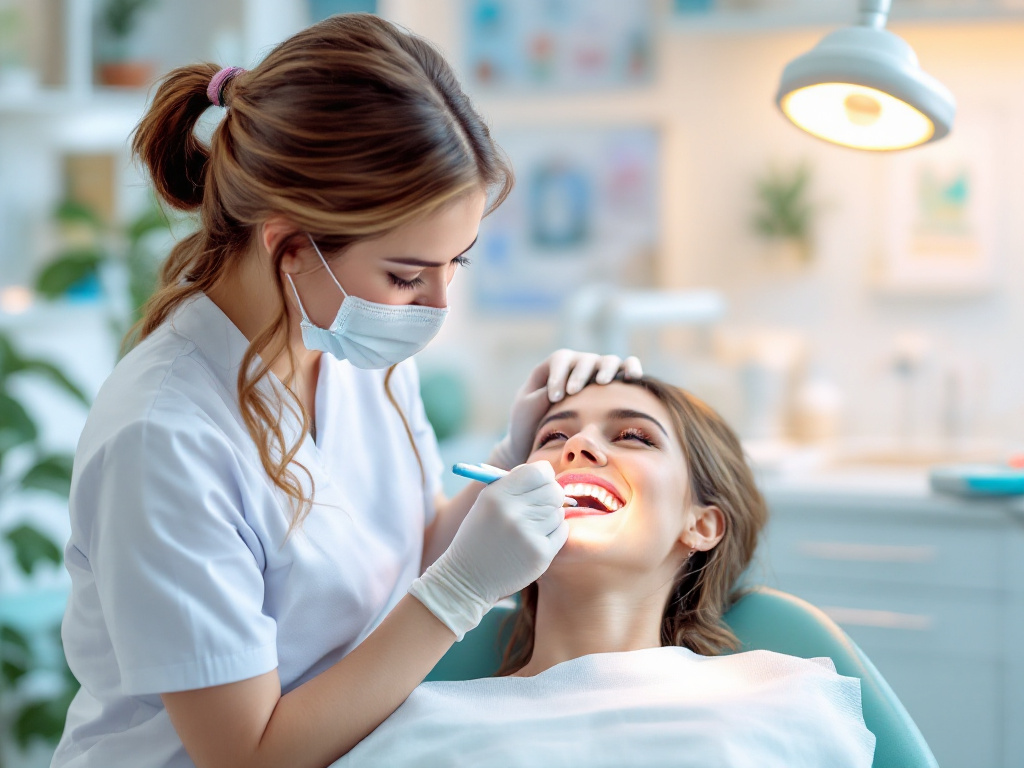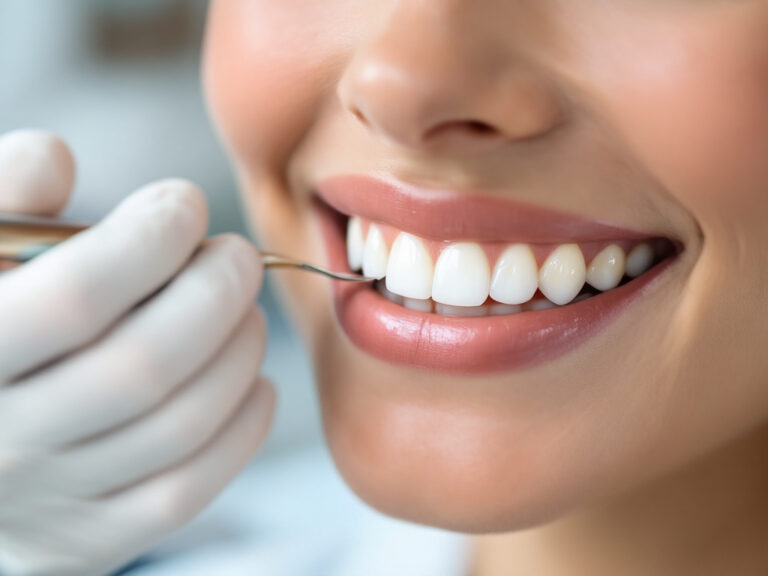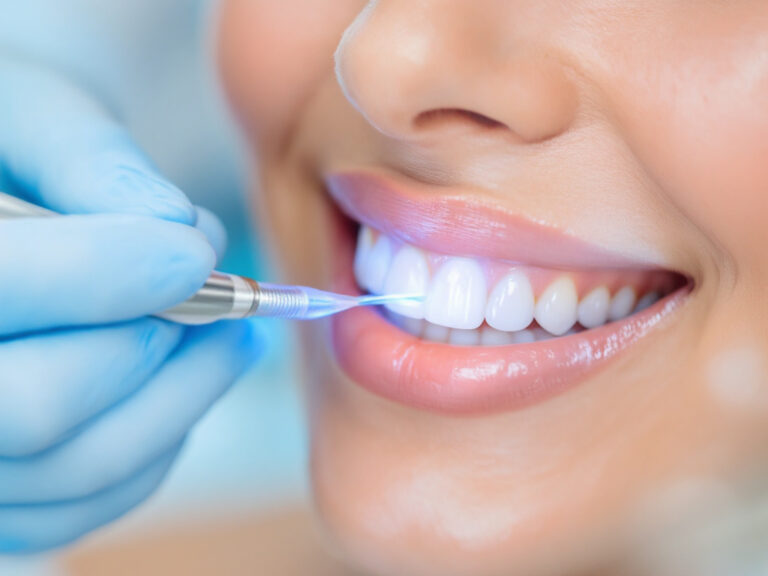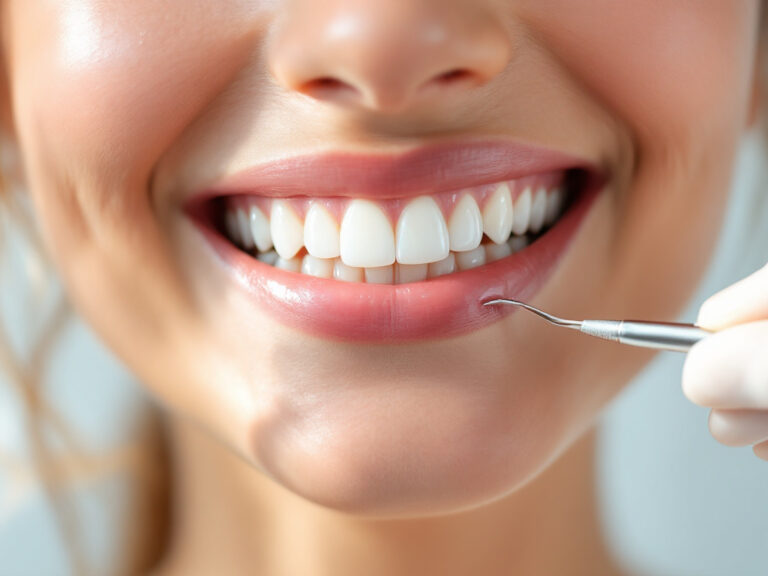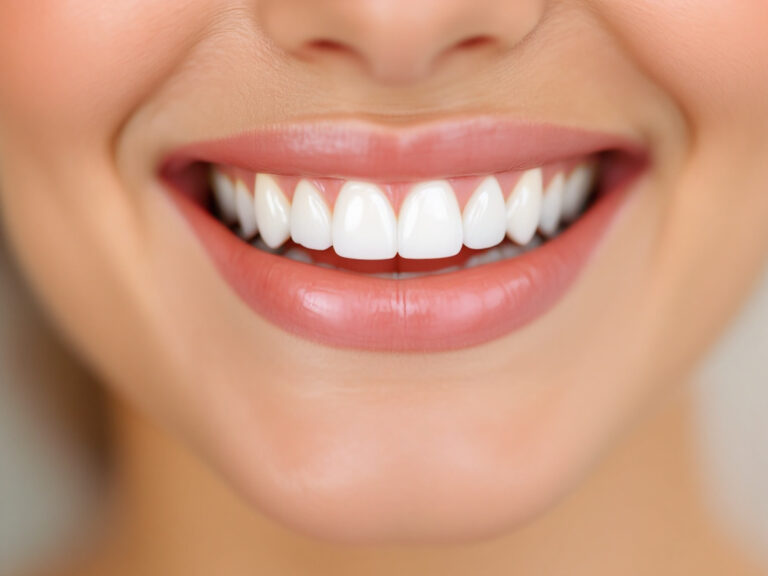Understand professional dental hygiene services
When you choose professional dental hygiene services, you invest in the longevity of your oral health. Regular visits to a trusted general dentistry provider like Belmont Dental ensure that your smile receives expert attention beyond daily brushing and flossing. These preventive visits combine thorough cleanings with comprehensive assessments, empowering you to maintain healthy teeth and gums over the years.
What these services include
Professional dental hygiene visits typically consist of:
- A thorough oral inspection to check for early signs of gum disease, cavities, or other concerns
- Removal of plaque and tartar using manual scalers or ultrasonic instruments [1]
- Polishing of tooth surfaces with gritty prophylaxis paste and a high-powered electric brush
- Expert flossing to reach deep between teeth and clean trouble spots [1]
- Application of a protective fluoride treatment to strengthen enamel and guard against decay
- Personalized oral hygiene instruction to improve your home care routine
By combining these steps, your dental hygienist tackles issues that ordinary at-home care cannot fully address, setting the foundation for lasting oral health.
Who performs the cleaning
Your cleaning is delivered by a licensed dental hygienist, a specialist trained in preventive oral care. After reviewing your medical history, the hygienist conducts a detailed oral exam, noting any signs of gingivitis or other conditions. If serious concerns arise, they consult with the dentist to coordinate follow-up care. For new patients, this process often begins with a comprehensive dental assessment or a new patient dental exam, ensuring a tailored plan that addresses your unique needs.
Explore the key benefits
Investing in professional teeth cleanings and exams offers advantages that extend far beyond a brighter smile. Understanding these benefits can help you stay motivated to schedule regular preventive visits.
Prevent tooth decay and gum disease
Removing plaque and hardened tartar prevents the bacteria that cause cavities and periodontal issues from flourishing. As a result, you reduce your risk of:
- Cavities that require fillings or root canals
- Gingivitis, which can progress to periodontitis if unchecked
- Tooth sensitivity and enamel erosion
By keeping your teeth smooth and free of deposits, you create a barrier against decay and inflammation, laying the groundwork for lifelong oral wellness.
Detect issues early
During each hygiene visit, your dental team examines your teeth, gums, and soft tissues for warning signs that you might miss at home. Early detection efforts include:
- Cavity identification before pain or infection set in
- Assessment of gum health through probing measurements and gum disease evaluation
- Screening for oral cancer or soft-tissue abnormalities [2]
Catching problems in their infancy saves you time, discomfort, and expense by avoiding complex treatments down the line.
Improve overall health
Oral health is closely linked to your general well-being. Studies show that professional cleanings can help lower your risk of systemic concerns such as cardiovascular disease and diabetes complications [3]. By managing inflammation and bacterial load in your mouth, you contribute to healthier organs, improved blood sugar control, and reduced chronic disease risk.
Review the cleaning process
Knowing what to expect can ease any anxiety you may have about dental visits. Here’s a step-by-step look at a typical professional cleaning:
Initial examination
Your appointment begins with a review of your medical history and any recent dental changes. The hygienist inspects your mouth for signs of inflammation, bleeding, or unusual spots. This stage often includes:
- A review of X-rays or digital images, if taken
- A check of tooth restorations, bite alignment, and soft tissue health
- Discussion of any concerns you may have about pain or sensitivity
If you’re due for X-rays or a more comprehensive checkup, your visit may also include a dental exam appointment.
Scaling and polishing
Next comes the core cleaning:
- Scaling
The hygienist removes plaque and tartar above and below the gum line using ultrasonic scalers and hand instruments. This process may take longer in areas with heavier buildup [1]. - Polishing
After scaling, your teeth are polished with a rotary brush and abrasive paste, smoothing the enamel and eliminating surface stains.
These steps deliver a deep clean that home care tools cannot achieve on their own.
Fluoride treatment
To conclude your visit, a fluoride treatment may be applied to help remineralize enamel and prevent future decay. Options include:
- Foamy gel in a mouth tray
- Varnish painted on individual teeth
- Rinses of fluoride solution
Your hygienist helps you choose the best method, ensuring you leave with extra protection that lasts for months.
Evaluate frequency recommendations
Determining how often you need professional cleanings depends on general guidelines and your personal risk factors.
Standard six months guideline
The American Dental Association recommends that most individuals schedule cleanings every six months to maintain optimal oral health [4]. For many, this frequency balances prevention with convenience, keeping bacteria and deposits under control without unnecessary visits.
Personalized scheduling
Certain factors may require more or less frequent appointments:
- Co-occurring conditions such as diabetes or heart disease
- History of periodontal disease or heavy tartar buildup
- Smoking or tobacco use
- Dry mouth from medications or medical treatments
Your dentist can help you develop a custom dental hygiene plan or refer you to a periodontal maintenance program if deeper cleanings are needed.
Consider cost and insurance
Understanding the financial aspects of professional hygiene services allows you to plan effectively and take advantage of available benefits.
Typical price range
Without insurance, a standard dental cleaning can range from $75 to $200, depending on location and complexity. Fluoride treatments, if not included, may add an extra $20 to $50 to your total cost [5].
Insurance coverage details
Most dental plans consider professional cleanings and exams as preventive care, covering one or two visits per year at little or no out-of-pocket cost. If you need additional visits, fees may apply. To maximize your benefits:
- Verify coverage with your provider before scheduling
- Confirm that you’re visiting an insurance accepted dental office
- Explore affordable preventive dentistry options if you lack coverage
By planning ahead, you can maintain your oral health without unexpected bills.
Choose comfort and safety
Your comfort and well-being are top priorities during every dental visit. Belmont Dental employs strategies to make your experience as pleasant as possible.
Pain management options
If you have sensitive teeth or anticipate discomfort during deep cleanings, your hygienist can:
- Apply a topical numbing gel
- Administer a local anesthetic injection when necessary
- Recommend tooth sensitivity treatment for ongoing relief
These measures ensure that even extensive cleanings remain pain free and stress free.
Advanced technology
Modern dental clinics use cutting-edge tools to enhance safety and efficiency:
- Ultrasonic scalers that gently break down calcified deposits below the gum line
- Digital imaging for precise diagnostics and reduced radiation exposure [3]
- High-volume suction and protective barriers to minimize airborne particles
Additionally, a gentle dentist for families and caring support staff create a welcoming atmosphere for patients of all ages.
Assess long-term oral wellness
Professional care lays the foundation for strong oral health, but maintaining that health requires a partnership between you and your dental team.
Home care tips
Between visits, you can reinforce your smile’s defenses by:
- Brushing for two minutes twice a day with a soft-bristled brush and fluoride toothpaste
- Flossing or using interdental cleaners daily to remove hidden debris
- Rinsing with an antiseptic or fluoride mouthwash as recommended
- Choosing a balanced diet rich in calcium and low in sugary snacks
- Staying hydrated to support saliva flow and gum health
These daily habits work hand in hand with professional cleanings to keep your mouth healthy.
Ongoing preventive plan
To maintain momentum in your oral care:
- Schedule a routine dental checkup every six months, or as advised
- Review your progress and adjust your preventive dental care plan annually
- Involve family members in family dental care services to foster lifelong healthy habits
Consistency is key: by adhering to a structured plan, you minimize surprises and maintain control over your oral health journey.
Take the next step
Choosing professional dental hygiene services at Belmont Dental is an investment in more than just your smile. It’s a commitment to better overall health, cost savings on complex treatments, and a future of confidence and comfort. To get started, schedule your new patient dental exam or book a professional teeth cleaning today. Our experienced team is here to support you at every stage of your preventive care journey.

